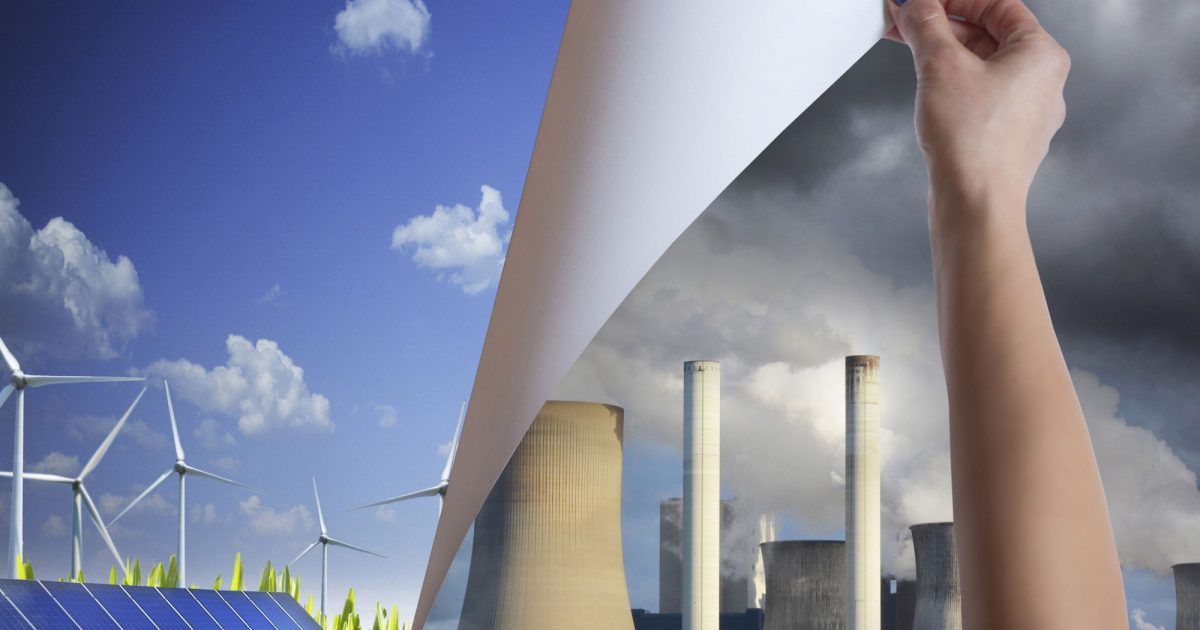Azerbaijan’s energy transition holds great promise for future

Earth's climate has changed throughout history. In the last 800 thousand years, there have been eight cycles of ice ages and warmer periods, with the end of the last ice age about 11,700 years ago marking the beginning of the modern climate era and of human civilization. Most of these climate changes are attributed to very small variations in Earth’s orbit that change the amount of solar energy our planet receives.
As we know the Earth can perfectly continue its existence without humans. Nevertheless, one of the important factors for humans to continue the existence of their species and to take responsibility for the damage caused to nature is to intervene in these global changes in a good way.
Global warming is one of the issues where these interventions are important. It is one of the most worrying consequences of climate change around for humankind. In recent years, especially greenhouse gas emissions have been accumulating in the atmosphere and causing the world to warm up.
Because of the COVID-19 pandemic, these emissions decreased by 3.7% in 2020 compared to 2019 levels, interrupting a more than ten-year continuously increasing trend.
Nevertheless, GHG emissions restarted to grow right after COVID-19, reaching the level of 53.8 Gt CO2eq in 2022, which is 2.3% higher than in 2019 and 1.4% higher than in 2021, according to the European Commission Emissions Database for Global Atmospheric Research (EDGAR).
According to the EU4Climate 2023 year report, Azerbaijan’s GHG emissions decreased between 1990 and 1995 by 37% to a level of about 52 Mio t CO2eq, which is about the same level as in 2010. Since then, GHG emissions increased by 19% to 61 Mio t CO2eq in 2016.
Since 1995, aiming to assess the progress made in combating climate change around the world, including greenhouse gas emissions, the Conference of the Parties to the UN Framework Convention on Climate Change (UNFCCC) has been held annually.
Azerbaijan committed in its first Nationally Determined Contribution (NDC) to achieve a quantitative target of a 35% GHG emissions reduction by 2030 compared to 1990. At COP 26, the country announced a target of 40% GHG emission reduction by 2050.
On May 18, 2021, President Ilham Aliyev announced that the entire Garabagh region would be transformed into a Green Energy Zone, during a meeting with the people of the liberated Aghdam.
In Garabagh and Eastern Zangazur, 170 megawatt hydroelectric power stations were put into use in 2021-2023. By the end of 2024, this number will reach 270 megawatts. In a few years, the total capacity of hydroelectric power stations in the territories liberated from Armenian occupation will be 500 megawatts.
Regarding electricity, the initiation of field exports derived from renewable energy sources signifies the dawn of a new chapter in Azerbaijan's energy strategy. President Ilham Aliyev has accorded top priority to the expansion of renewable energy sources, aiming to elevate the proportion of renewable energy in the total electricity production capacity to 30 percent by 2030.
The country boasts a renewable energy potential that surpasses 27 GW, encompassing wind and solar energy on land, with an additional 157 GW of wind energy in the Azerbaijani sector of the Caspian Sea.
By 2027, Azerbaijan aims to generate 3 GW of wind energy and 1 GW of solar energy, to export 80 percent of this production. Looking ahead to 2037, Azerbaijan anticipates expanding its capacity to a minimum of 6 GW.
Azerbaijan's Energy Ministry researches and evaluates the opportunities for renewable energy sources. This covers research into hydropower, geothermal energy, biofuels, hydrogen technology, energy storage, and hydroaccumulation, as part of its national policy.
Recall that the 29th Conference of the Parties to the UN Framework Convention on Climate Change (COP29) will be held in Azerbaijan in 2024. The decision was made at the plenary session of COP28 on December 11.
Following back-to-back COPs held in the Middle East, this year’s marquee climate change event, hosted by Baku, is anticipated to raise critical awareness of climate change in the South Caucasus and the broader Eurasian region.
Azerbaijan’s experience implementing large, strategically important transnational projects such as the Baku-Tbilisi-Ceyhan pipeline and the Southern Gas Corridor will be worth emulating in this regard for other countries.
The country’s energy transition and commitment to reducing its carbon footprint offer significant opportunities for the country to achieve energy security and contribute to global efforts to combat climate change.
Azerbaijan’s energy transition is a complex and multifaceted process that holds great promise for the future. Azerbaijan can create a cleaner, healthier life for future generations by embracing new technologies and working toward a more sustainable energy future.
Here we are to serve you with news right now. It does not cost much, but worth your attention.
Choose to support open, independent, quality journalism and subscribe on a monthly basis.
By subscribing to our online newspaper, you can have full digital access to all news, analysis, and much more.
You can also follow AzerNEWS on Twitter @AzerNewsAz or Facebook @AzerNewsNewspaper
Thank you!

